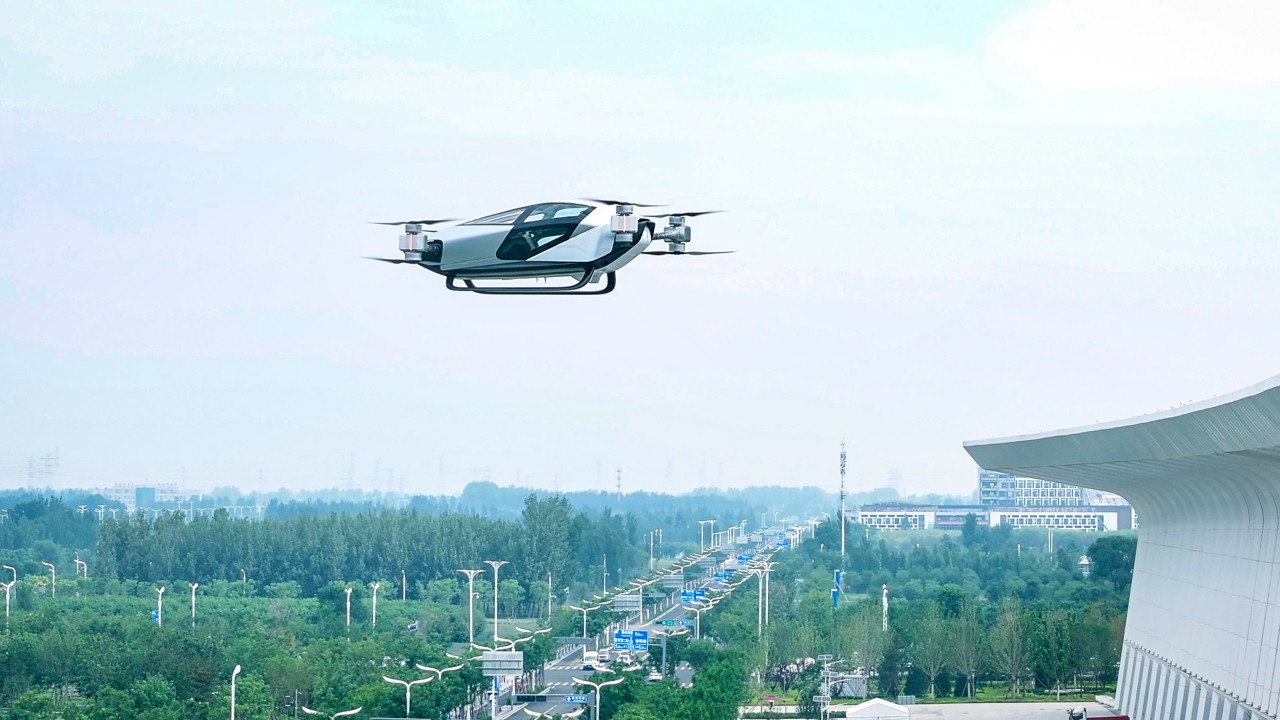
The X2 was demonstrated during the China Langfang International Economic and Trade Fair, which kicked off on the same day and runs through Thursday.
Development could further accelerate after the central government in 2024 included the low-altitude economy in its work report for the first time. Twenty-six provincial governments laid out plans for the low-altitude economy this year, according to official data published in April.
The Beijing municipality in March issued a blueprint for its low-altitude sector, with plans to establish three major air routes connecting neighbouring areas by 2027, covering scenarios such as emergency rescue, logistics and distribution, cultural tourism, commuting and more.
The country’s low-altitude market is forecast to exceed 1 trillion yuan (US$138 billion) by 2026, up from 506 billion yuan in 2023, according to a report by the China Centre for Information Industry Development, a think tank affiliated with the Ministry of Industry and Information Technology.
AeroHT began developing its flying cars in 2013. It has established research centres and testing bases in Guangzhou, capital of southern Guangdong province and the headquarters of Xpeng, as well as labs for fly-caring research in Shenzhen and Shanghai.
While China’s low-altitude economy is beginning to take shape, underdeveloped infrastructure and lack of industry-wide standards are hindering large-scale commercial roll-out, Wu Ximing, deputy director of the Science and Technology Committee of the Aviation Industry Corporation of China, was quoted as saying in a People’s Daily report in April.

